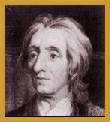
Exhibit 5.5
Rousseau
According to Montesquieu every government
should be framed to meet the needs and the character of the people
under it. He considered that a separation of powers in the government
was essential for safeguarding liberty. Thus one person would not
possess the three powers of making, enforcing and judging the law.
It was this quality of the English government that Montesquieu highly
admired, as the three powers of government were well divided. He
favored moderation.
Rousseau was a radical thinker who put forward
revolutionary theories. Similar to Locke, he put forward the theory
that government is based on a social contract, that is the consent
of the governed. His ’social-contract’ theory became famous. According
to Rousseau, the best form of government was a republic, because
it was sensitive to the desires of the people. Though Rousseau is
classed as a Deist, he was a lover of nature and accepted the Great
Commandment that ’to love God above all things and your neighbor
as yourself, is the sum of the law’. His motto was revolution rather
than moderation. Along with other thinkers, Rousseau made pleas
for liberty and nationalism. Napoleon Bonaparte has rightly
commented that the French Revolution would not have taken place
if Rousseau had never lived.
Education
Revolutionary ideas regarding education were set
forth in the 18th century. Church schools were criticized. There
was an agitation for more general education through state schools.
The famous American Thomas Jefferson also put forward similar
views as those held by several Europeans on these matters.
Economics
During the 18th century, sharp criticism was leveled
at accepted theories of business, of wealth and of what the state
should or should not do regarding business. The mercantilists were
attacked by the Physiocrats, a group of French writers who
wanted to shift emphasis from commerce and the ’balance of trade’,
to farming and mining. Protective tariffs and other methods by which
the state could regulate business were opposed by them. They were
in favor of greater liberty. They possessed the opinion that men
had the right to work and trade freely, provided that they did not
interfere with similar rights of others.

Exhibit 5.6
Adam Smith, the father of Economics
The Scotsman Adam Smith, explained the new
economic freedom in his book The Wealth of Nations in 1776
which was a declaration of independence for industry. Smith advocated
that freedom should be given to each employer of labor and each
seller of goods, in order to advance the true wealth of a nation.
Though the middle class was helped by The Wealth of the Nations,
the condition of the lower classes became more miserable than ever.
However it broke down mercantilism and propagated the concept of
’natural rights’ and ’natural laws’.
|
Index
5.0 - Introduction
5.1 Growth and Features of the Revolution
5.2 The Rationalist Spirit and the Contribution
of Voltaire
5.3 Application of the Critical Spirit
5.4 Age of Enlightened Despots
5.5 Dates & Events
5.6 Points to Remember
Chapter 6
|